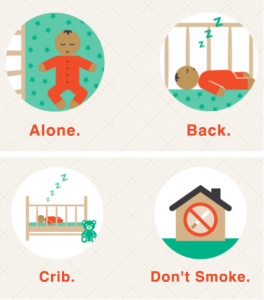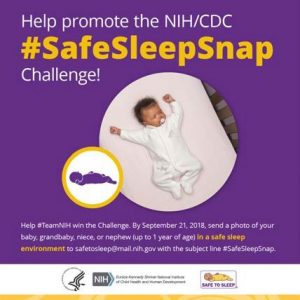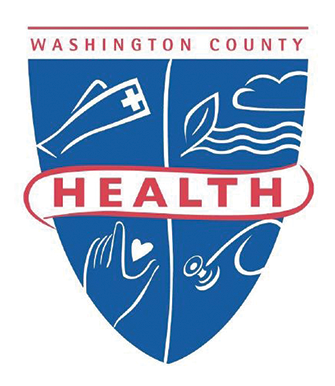According to CDC, sudden unexpected infant death (SUID) is a term used to describe the sudden and unexpected death of a baby less than 1 year old in which the cause was not obvious before investigation. These deaths often happen during sleep or in the baby’s sleep area. Sudden unexpected infant deaths include Sudden Infant Death Syndrome (SIDS), accidental suffocation in a sleeping environment, and other deaths from unknown causes.
A parent’s worst nightmare is for something bad to happen to their baby. The good news is that there are things parents and caregivers can do to reduce the risk of SIDS and other sleep-related infant deaths. Following the ABCs of Safe Sleep is a good way for caregivers to remember how to create a safe sleep environment for their babies:
 Alone – The safest way for babies to sleep is alone in their own bed and not sharing a bed or co-sleeping with their parents, other children, or animals. There should be no pillows, blankets, toys, clothing, sleep positioners, bumper pads, or other items in the baby’s sleep area.
Alone – The safest way for babies to sleep is alone in their own bed and not sharing a bed or co-sleeping with their parents, other children, or animals. There should be no pillows, blankets, toys, clothing, sleep positioners, bumper pads, or other items in the baby’s sleep area.- Back – Babies should always be placed to sleep on their backs every time they are put to sleep! This is important for naps, nighttime sleep, sleep after feedings, and when other caregivers are putting the baby to sleep. A baby who normally sleeps on its back but is then placed on its stomach to sleep is at an especially high risk of SIDS.
- Crib – Babies should be placed to sleep on a firm, flat sleep surface, such as a mattress in a safety-approved crib. The mattress should only have a fitted sheet on it. Babies should never sleep in adult beds, on couches, or anywhere that is not a safety-approved crib or bassinet.
For additional ways on how to reduce the risk of SIDS and other sleep-related infant deaths visit www.nichd.nih.gov/health/topics/sids/conditioninfo/reduce
Since 2010, there have been 25 infants who died while sleeping in Washington County. 19 of those infants were not in safe sleep environments. Half of those babies were co-sleeping on the same surface as adults. In at least 75% of the cases in Washington County, one or both parents abused substances including opioids, alcohol, or marijuana. Using tobacco, alcohol, or drugs while pregnant or when taking care of a child can increase the risk of SUID. If you need help to stop smoking or to find treatment for substance abuse, contact the Washington County Health Department Division of Behavioral Health at 240-313-3310.
 No one wants babies to die of SUID or SIDS. Many of these deaths can be prevented! How can you help? Parents and caregivers can follow the Safe Sleep guidelines to ensure their babies stay safe and tell babysitters and other caregivers how to put their babies to sleep safely. Pregnant women and new parents can join the health department’s Healthy Families program to learn positive parenting strategies; sign up by calling 240-313-3270. Everyone can share information about Safe Sleep with others and participate in the #SafeSleepSnap photo activity by sharing photos of babies in safe sleep environments on social media and tagging them with #SafeSleepSnap. Follow the Washington County Health Department on Facebook at https://facebook.com/WashHealth for tips on how to prevent SUID throughout the month of October.
No one wants babies to die of SUID or SIDS. Many of these deaths can be prevented! How can you help? Parents and caregivers can follow the Safe Sleep guidelines to ensure their babies stay safe and tell babysitters and other caregivers how to put their babies to sleep safely. Pregnant women and new parents can join the health department’s Healthy Families program to learn positive parenting strategies; sign up by calling 240-313-3270. Everyone can share information about Safe Sleep with others and participate in the #SafeSleepSnap photo activity by sharing photos of babies in safe sleep environments on social media and tagging them with #SafeSleepSnap. Follow the Washington County Health Department on Facebook at https://facebook.com/WashHealth for tips on how to prevent SUID throughout the month of October.
To learn more about Safe Sleep, visit https://safetosleep.nichd.nih.gov

